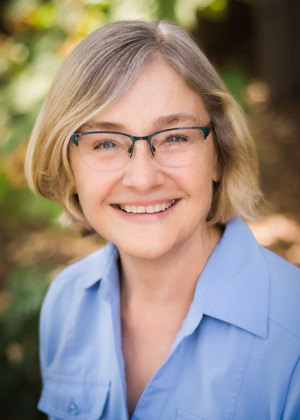Get the Right Help to Feel Better – Call (650) 461-9026 or Text (650) 461-9026
Jeanne Jacobs, LPCC

Jeanne Jacobs, LPCC
Licensed in: California, Minnesota, & Wyoming
For Jeanne, providing therapy is a culmination of her life’s varied work experience, which includes working for several years as an equity/diversity specialist in an educational cooperative. Jeanne highly values connection with others and the ways in which people come to understand and express themselves in relationship to their own life experiences.
She has 15 years of experience providing therapy to children, adolescents and adults. Her areas of specialty are grief and loss, depression, insomnia and postpartum issues. Jeanne primarily uses CBT, focusing on self-awareness, communication patterns and skill building.
Jeanne loves helping clients solve their problems. “It is my belief that every solution to a problem lies within the person who owns the problem. It is my work to assist others to bring that solution to awareness.”
Jeanne received her master’s degree from North Dakota State University and is Board Certified by the National Board for Certified Counselors.
In addition, Jeanne is certified in Love and Logic Parenting and the Prepare/Enrich program for couples. She is team certified in Dialectical Behavioral Therapy and uses that approach to help clients engage in mindfulness, self-compassion and freedom from judgment toward self and others.
When not working, Jeanne likes to spend time with friends and family, and hiking and backpacking.
Concerns:
- Academic Stress
- Anger
- Anxiety
- Bipolar
- Body Image
- Chronic or Terminal Illness
- Death, Grief, and Loss
- Depression
- Hair Pulling (Trichotillomania)
- Life Transitions
- OCD
- Panic Attacks
- Parenting and Discipline
- Phobias
- PTSD/Trauma
- Relationships/Communication
- Self-Esteem
- Skin-Picking
- Social Anxiety
- Stress
- Substance Abuse/Use
- Women’s Issues
- Work/Career
Special Interests:
- Couples
- Older Adolescents to Adults
Certifications:
- Cognitive Behavioral Therapy
- OCD
- Premarital Counseling
Intensive Study/Specialization:
- Applied Suicide Intervention Skills Training (ASSIST)
- Couples Therapy- Gottman Method
- Dialectical Behavioral Therapy (DBT)
- Joint Center on Violence and Victim Studies
- Love and Logic Parenting
- Mindfulness
- Prepare-Enrich Pre-Marriage/Marriage Curriculum
- Seeking Educational Equity and Diversity (SEED)
- Substance Use Disorders
- TEAM CBT (David Burns)
Professional counselor education and training standards for licensure are on par with marriage and family therapists and clinical social workers, the other two master’s level mental health providers in the state. Requirements for California’s Licensed Professional Clinical Counselors (LPCCs) include:
- Possession of a 60-unit master’s or doctoral degree in counseling, or a closely related degree, from a regionally accredited or “approved” institution of higher education that includes certain core content areas
- Completion of a minimum of 3,000 hours of post-master’s supervised clinical experience, performed over two years, and continuing education hours for renewal (Before full licensure, LPCCs are called “Associates”.)
- Passage of the National Clinical Mental Health Counselor Examination (NCMHCE) and a California Law & Ethics Exam
- Adherence to a strict Code of Ethics and recognized standards of practice, as regulated by California’s Board of Behavioral Sciences
How can a LPCC help me?
Like other mental health professionals such as social workers, psychologists, psychiatrists, LMFTs, LPCC’s help clients by diagnosing and treating common emotional and behavioral difficulties that interfere with functioning at an optimal level. LPCC’s use empirical-supported counseling techniques to help their clients achieve desired goals.
